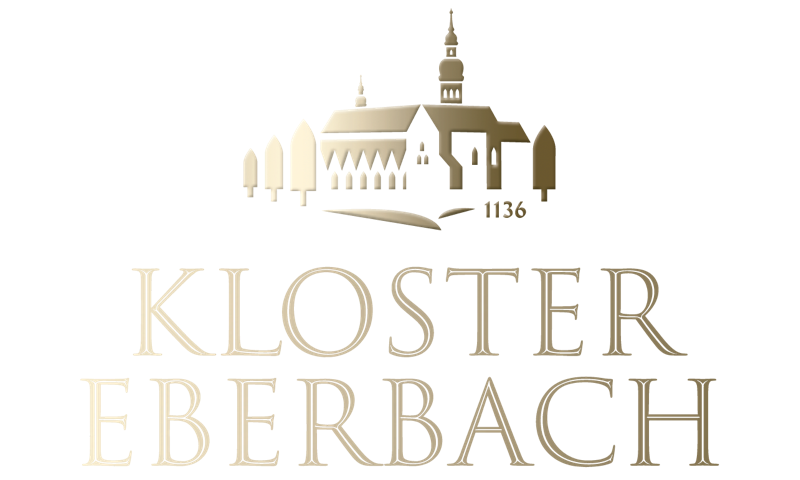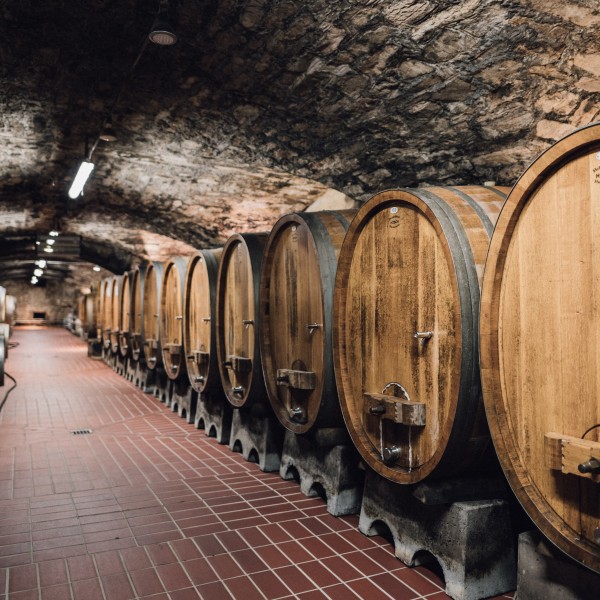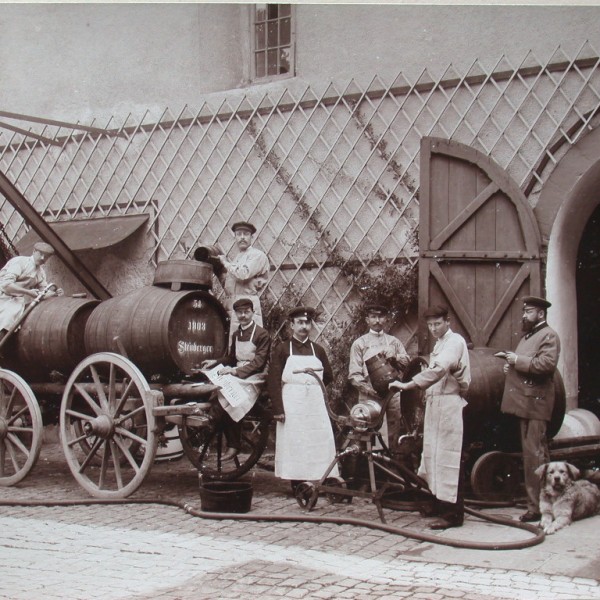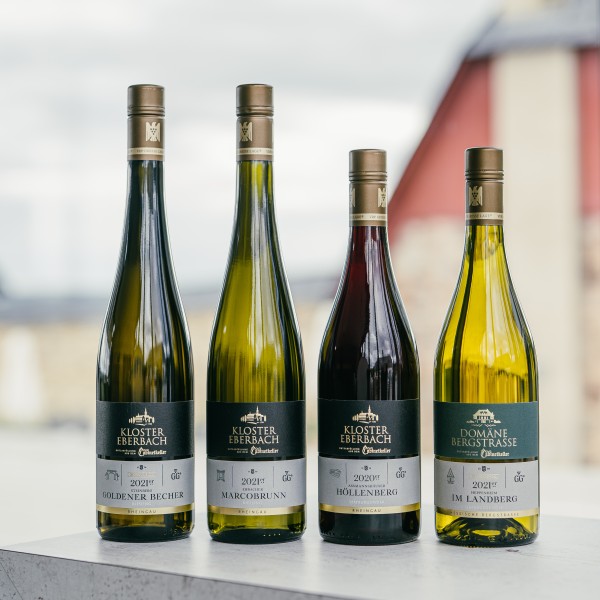Biodiversity
Biodiversity in our almost 230 hectares of vineyards is a very special concern for us, and one that we work on every day. We leave a total of up to 5 hectares of slopes and vineyard edges naturally vegetated to provide refuge for insects and reptiles and only cut back or roll them once a year.
A large number of insect hotels, stone mounds and raptor stands have been established evenly across the sites. A 90-m-long gabion wall with tube systems was built to protect the Aesculapian snake in the Rauenthal. Over 13 km of walls provide an ideal habitat as well as a refuge for reptiles and insects.
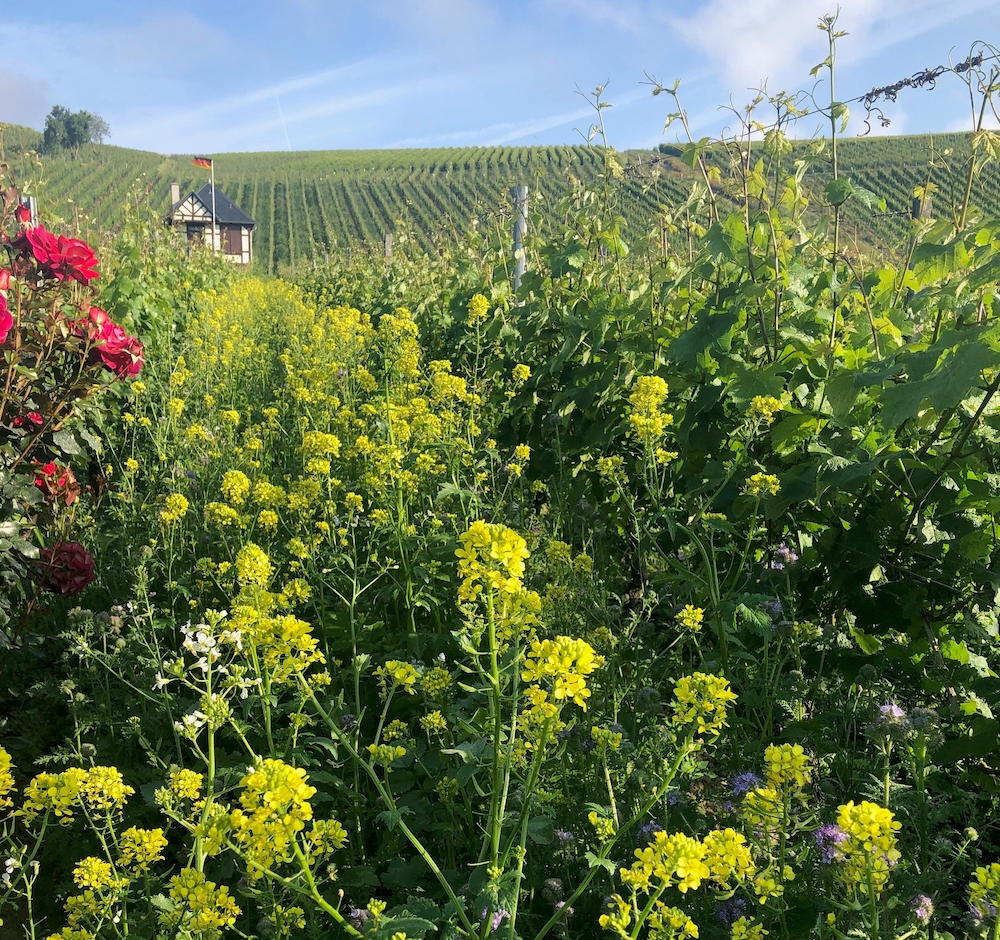
Cooperation with the Hochschule Geisenheim University
Probably the largest of the many joint projects with the Hochschule Geisenheim University is called "BioQuiS: Promotion of Biodiversity through Cross-Raising in Steep-Slope Viticulture".
By transforming steep vineyards into transverse terraces and creating flowering slopes, biodiversity is strengthened and a contribution is made to water protection by preventing erosion. More than ten hectares of steep slopes have already been made into transverse terraces in recent years and thus aligned with the new climatic and socio-economic challenges. Together with the Hochschule Geisenheim University, the aim is to protect the centuries-old cultural landscape and to use the results to offer helpful insights for all winegrowers in Germany.
Other research projects with universities include the application of pesticides by drones, optimised irrigation control in vineyards with low water storage capacity, preservation of historic seed stock, and soil testing in the context of nitrate leaching and heavy metal contamination in vineyards.
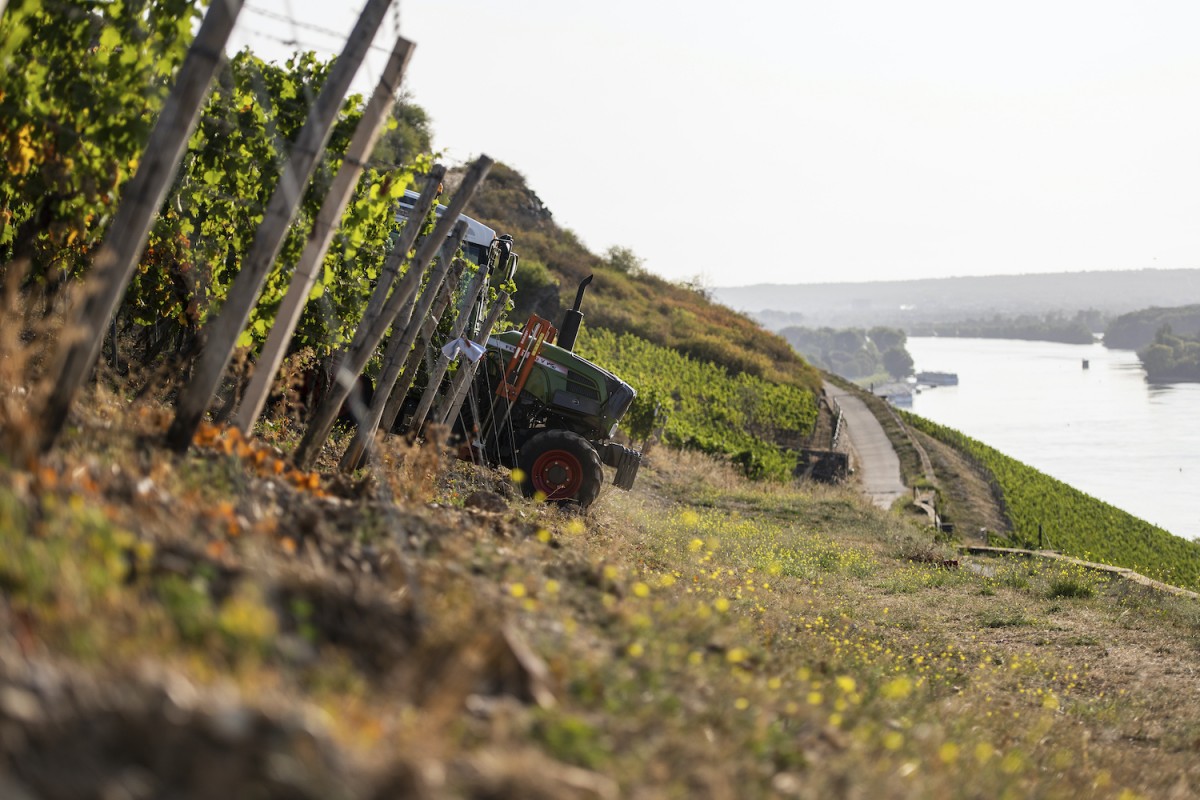
Sustainability – a holistic system
We also attach great importance to social commitment and sustainable business management outside of viticulture. Thus, topics such as the use of green electricity, a steadily increasing share of lightweight glass bottles for CO2 reduction, and reference to moderate alcohol consumption are an essential part of the company philosophy.

In order to be able to fully live up to our claim as a quality role model, we have aligned all production stages accordingly and have them regularly inspected by an independent institute (DQS).
As a sign of recognition and confirmation, we are certified according to the integrated QM system "ECO-STEP".
Certification
